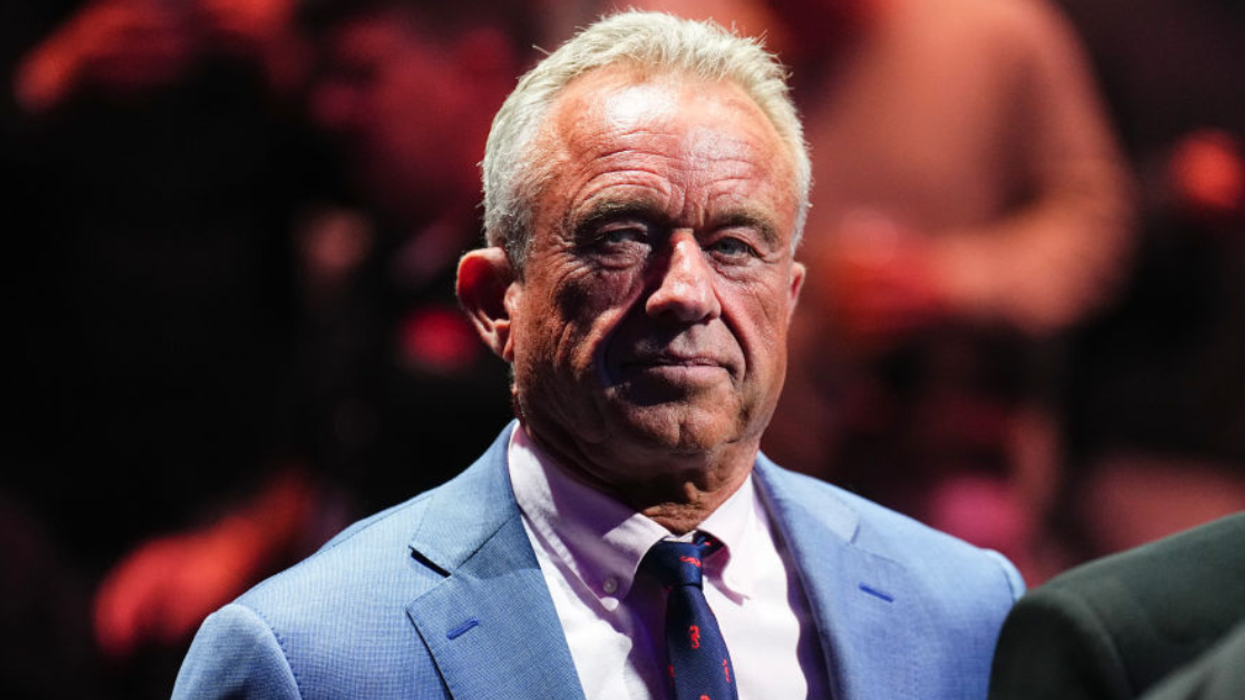A group of 77 Nobel laureates wrote an open letter to Senate lawmakers stressing that confirming Robert F. Kennedy Jr. as President-elect Donald Trump's Secretary of Health and Human Services "would put the public’s health in jeopardy and undermine America’s global leadership in health science."
The letter, obtained by The New York Times, represents a rare move by Nobel laureates, marking the first time in recent memory they have collectively opposed a Cabinet nominee, according to Richard Roberts, the 1993 Nobel laureate in Physiology or Medicine, who helped draft it.
However, the potential confirmation of Kennedy, known for his criticism of mainstream medicine and hostility toward the very scientists and agencies he would oversee, presented what the laureates saw as an avoidable threat.
The letter warned that Kennedy’s opposition to established public health measures, such as vaccines and the fluoridation of drinking water, would jeopardize the nation's well-being if he were confirmed.
The laureates—a list that includes Victor Ambros and Gary Ruvkun, who received this year’s Nobel Prize in Physiology or Medicine for the discovery of microRNA—condemned Kennedy’s promotion of conspiracy theories, including his false claims linking vaccines to autism, his rejection of scientific evidence that H.I.V. causes AIDS, and his baseless suggestion that COVID-19 targeted and spared specific ethnic groups.
They also highlighted Kennedy’s history as a “belligerent critic” of agencies like the Food and Drug Administration, the Centers for Disease Control and Prevention, and the National Institutes of Health—institutions he would oversee if confirmed.
They wrote:
"We, the undersigned Nobel laureates, are writing to ask you to oppose the confirmation of Robert F. Kennedy Jr. as Secretary of the Department of Health and Human Services (DHHS)."
"The proposal to place Mr. Kennedy in charge of the federal agencies responsible for protecting the health of American citizens and conducting the medical research that benefits our country and the rest of humanity has been widely criticized on multiple grounds."
"In addition to his lack of credentials or relative experience in medicine, science, public health, or administration, has been an opponent of many health-protecting and life-saving vaccines, such as those that prevent measles and polio; a critic of the well-established positive effects of flouridation of drinking water; a promoter of conspiracy theories about remarkably successful treatments for AIDS and other diseases; and a belligerent critic of respected agencies (especially the Food and Drug Administration, the Centers for Disease Control, and the National Institutes of Health)."
"The leader of DHHS should continue to nurture and improve—not threaten—these important and highly respected institutions and their employees."
"In view of his record, placing Mr. Kennedy in charge of DHHS would would put the public's health in jeopardy and undermine America's global leadership in the health sciences, in both the public and commercial sectors."
"We strongly urge you to vote against the confirmation of his appointment as Secretary of DHHS."
Many joined them in sounding the alarm.
A spokeswoman for Trump's transition team dismissed these concerns, issuing the following statement:
"Americans are sick and tired of the elites telling them what to do and how to do it. Our healthcare system in this country is broken, Mr. Kennedy will enact President Trumps [sic] agenda to restore the integrity of our healthcare and Make America Healthy Again.”
DHHS plays a critical role in shaping public health policy, addressing disease prevention and treatment, funding medical research and community health initiatives, supporting child welfare programs such as adoption, foster care, and child abuse prevention, and developing strategies to counter bioterrorism. It also oversees refugee resettlement for individuals seeking asylum in the United States and much more.
If confirmed, Kennedy would take charge of a sprawling health policy apparatus that encompasses 13 agencies, manages a $2 trillion budget, and administers key federal health programs like Medicare, Medicaid, and the Affordable Care Act. However, the Trump transition team has signaled that many of these programs could face deep cuts—or even elimination.








 The Benny Show
The Benny Show





 @neilforreal/Bluesky
@neilforreal/Bluesky @savannahcat/Bluesky
@savannahcat/Bluesky @qadishtujessica.inanna.app
@qadishtujessica.inanna.app @v-ron/Bluesky
@v-ron/Bluesky @nelnelnellie/Bluesky
@nelnelnellie/Bluesky @beatlenumber9/Bluesky
@beatlenumber9/Bluesky @pinkzombierose/Bluesky
@pinkzombierose/Bluesky
 @theunobsolete/TikTok
@theunobsolete/TikTok @theunobsolete/TikTok
@theunobsolete/TikTok @theunobsolete/TikTok
@theunobsolete/TikTok @theunobsolete/TikTok
@theunobsolete/TikTok @theunobsolete/TikTok
@theunobsolete/TikTok @theunobsolete/TikTok
@theunobsolete/TikTok @theunobsolete/TikTok
@theunobsolete/TikTok @theunobsolete/TikTok
@theunobsolete/TikTok @theunobsolete/TikTok
@theunobsolete/TikTok @theunobsolete/TikTok
@theunobsolete/TikTok @theunobsolete/TikTok
@theunobsolete/TikTok @theunobsolete/TikTok
@theunobsolete/TikTok @theunobsolete/TikTok
@theunobsolete/TikTok @theunobsolete/TikTok
@theunobsolete/TikTok @theunobsolete/TikTok
@theunobsolete/TikTok @theunobsolete/TikTok
@theunobsolete/TikTok @theunobsolete/TikTok
@theunobsolete/TikTok
 @laysuperstar/TikTok
@laysuperstar/TikTok @laysuperstar/TikTok
@laysuperstar/TikTok @laysuperstar/TikTok
@laysuperstar/TikTok @laysuperstar/TikTok
@laysuperstar/TikTok @laysuperstar/TikTok
@laysuperstar/TikTok @laysuperstar/TikTok
@laysuperstar/TikTok @laysuperstar/TikTok
@laysuperstar/TikTok @laysuperstar/TikTok
@laysuperstar/TikTok @laysuperstar/TikTok
@laysuperstar/TikTok @laysuperstar/TikTok
@laysuperstar/TikTok @laysuperstar/TikTok
@laysuperstar/TikTok @laysuperstar/TikTok
@laysuperstar/TikTok @laysuperstar/TikTok
@laysuperstar/TikTok @laysuperstar/TikTok
@laysuperstar/TikTok @laysuperstar/TikTok
@laysuperstar/TikTok